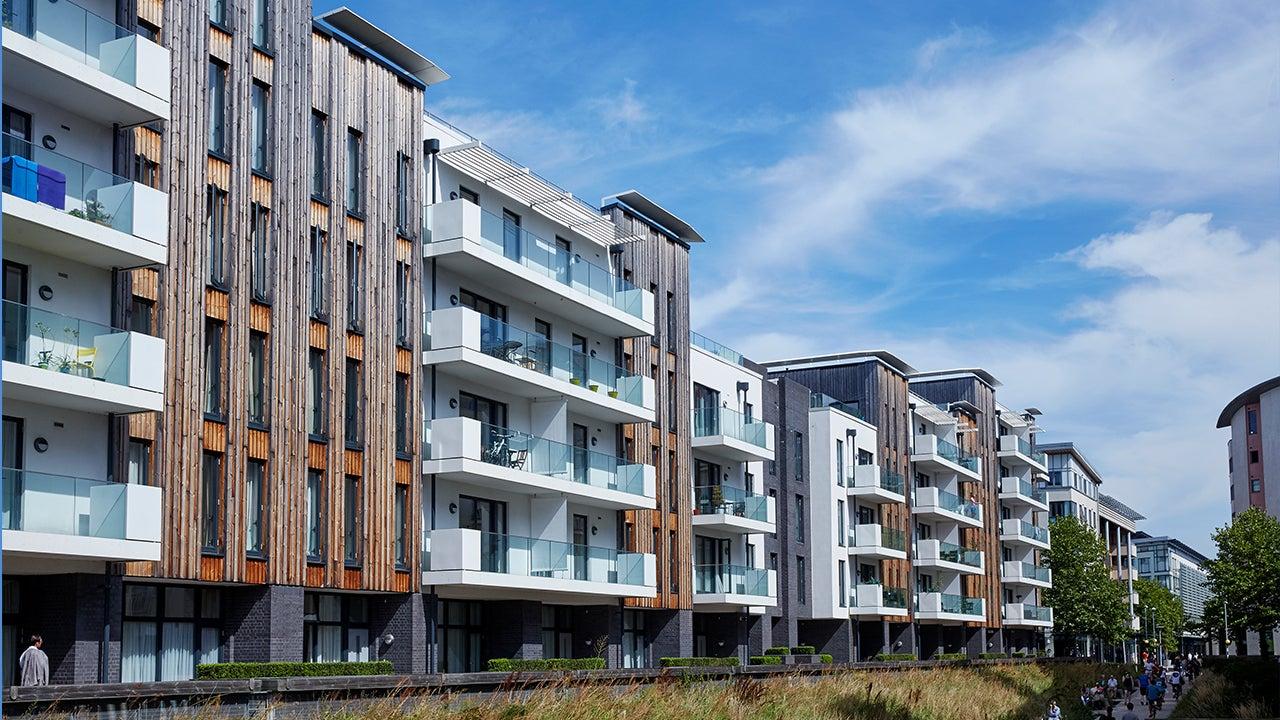Think qualifying for a mortgage loan for a single-family home is a challenge? Try applying for a mortgage to buy a condo.
Not only will you have to qualify for the loan, proving to your lender that you can afford your monthly mortgage payments and that you have a history of paying your bills on time, the association running the condo building where you want to buy has to approve you as well. .
It's that second part that gets tricky: You have control over your own finances. You have none over the financial skills of a condo association.
Get ready to work
Condominium buildings and associations must meet certain requirements to be approved by Fannie Mae, Freddie Mac or the Financial Housing Administration in order to be eligible for loans backed by those entities. And if a condo building is not approved for financing by any of them? Finding a lender who will give you a mortgage for a unit in that building will be a true challenge.
Brad German, a spokesman for Freddie Mac, said that the extra hurdles may make life more difficult for borrowers, but they also provide the protection that Freddie Mac needs.
Freddie Mac requires the lenders it works with to review condo associations to make sure that they are financially healthy and have enough insurance to cover unexpected damages and loss, and that the property is in good condition.
"We expect the lender to put as much emphasis on evaluating the property as collateral as it does on underwriting the borrower's creditworthiness," German said.
The rules
Here's an example of how tricky it can be for a condo building and its association to qualify for financing from Fannie Mae:
- No more than 15 percent of a condo building's owners can be late on their condo dues
- More than half of the units in a condo building must be owner-occupied
- No single owner can own more than 10 percent of the units
- All of a condo development's amenities -- everything from pools to fitness centers -- must be completed if the development is more than a year old
Even if your condo building does qualify for Fannie Mae financing, you will have to come up with a larger down payment than if you were asking for a mortgage loan for a single-family home. If you can't come up with a down payment of at least 25 percent of the condo unit's purchase price, you'll have to pay a stiff penalty: 0.75 percent of the loan amount at the closing table or a higher interest rate of about 0.25 percent. These rules hold true, too, for Freddie Mac financing.
If you're paying $200,000 for your condo unit, that 0.75 percent penalty comes out to $1,500 extra at closing.
The FHA route
What if you want to take out a loan insured by the Federal Housing Administration, better known as an FHA loan? Again, your condo building will have to meet certain rules, many of which are similar to the requirements enacted by Freddie Mac and Fannie Mae.
- At least half of all the units in a condo building need to be occupied by owners, not renters
- No more than 15 percent of condo owners can be delinquent on their condo association fees
- Again, no one owner can own more than 10 percent of the total units in a building
- There can be no ongoing litigation against the condo association
- The condo association's cash reserves must be equal to or higher than one year's worth of association fees
There is a benefit to taking out an FHA loan to finance a condo purchase, though: If you have solid credit, FHA requires a down payment of just 3.5 percent of a condo unit's final purchase price.
A frustrating search
Unfortunately, finding a condo building approved for FHA financing can be a tough task. The Washington Post reported in May of 2014 that just 10,020 condo projects across the country were approved for FHA financing as of that month. That's a small number when you consider that the number of condo projects in the United States at the time was estimated to be about 144,000.
Condos that are not approved for Fannie Mae, Freddie Mac or FHA financing are known as "nonwarrantable." It's not easy to get a mortgage for such units. You'll have to find a bank or lender that is willing to lend your money even with the knowledge that Fannie Mae or Freddie Mac will never be interested in buying the loan from them.
It's not easy to find lenders willing to do this. And even if you do, you'll need to come up with a large down payment to provide financial protection to a lender, maybe as much as 50 percent or more of the home's sales price.
You'll need good credit, too. Lenders today consider a FICO credit score of 740 or higher to be an excellent one. Expect to need a score that high if you want to gain financing from a lender for a "nonwarrantable" condo unit. Make sure, too, that your monthly debts -- including your new estimated mortgage payment -- equal no more than 43 percent of your gross monthly income.
Abby Shemesh of Amerinote Xchange, a principle mortgage note-buying firm in San Francisco, says that it's not rare for buyers to get disappointed in the condo search. They might find the perfect unit only to discover later that the condo building's homeowners association is involved in litigation. In such cases, no lender is going to loan them mortgage dollars for that unit, Shemesh said.
The same holds true if the homeowners association doesn't have enough reserves is otherwise found to be mismanaging the funds it collects, Shemesh said. But buyers shouldn't be too upset when lenders refuse to allow them to buy into a condo building with a struggling homeowners association.
"Why would you want to give your money to an association that is not doing a good job of managing its funds?" Shemesh said. "Even if you love a condo unit, you don't want to get involved with a poorly managed homeowners association. It's just too much hassle, no matter how nice a condo is."
All-cash purchases are common
Of course, you can buy any condo you want if you pay in cash. This is why so many condo sales today are done on an all-cash basis: Buyers don't have to worry about how many units are owned by one resident or how many renters a condo building holds. They just have to plunk down their cash.
Molly Boesel, senior economist with the Vienna, Va., office of CoreLogic, said that 56 percent of the condos sold in January in the United States were bought entirely with cash. That compares with 39 percent of all residential property types during the same time period that were purchased in all-cash transactions.
All-cash condo sales were especially popular in Florida. Boesel said that in Orlando, 85 percent of condos were purchased with all cash in January. In West Palm Beach that figure hit 82 percent, and in Fort Lauderdale it was 81 percent.
Unfortunately, not all condo buyers have enough cash to purchase units without first obtaining a mortgage. If you need to finance a condo today, remember this key: Find a condo building that is approved by Fannie Mae, Freddie Mac or the FHA. Then be prepared to jump through some extra hoops to qualify for that loan.





